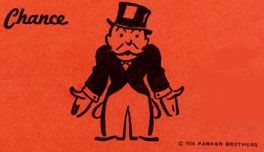 |
| Source: http://sayanythingblog.com/entry/36577/ |
There is another financing option that could save Charlotte taxpayers and shift the most of the costs to the actual beneficiaries--issue $125 million in city-guaranteed bonds with an agreement that the stadium owners will pay back the bonds.
The going rate for AAA municipal bonds with a 10-year maturity is 2 percent. So the annual payments on a 10-year, $125 million bond would be $13.92 million. If Charlotte has to drop down to AA, the interest rate would be about 3.1 percent, and the annual payments would be $14.73 million (this raises the immediate question of why the city is looking at a $24 million tax, when it could make do with a $14.73 million tax, or about $20 per resident, spread over 10 years).
Is $14.73 million per year too much to ask from the stadium owners? Hardly.
BofA Stadium holds 73,500 people. The Panthers play 10 games a year. The stadium also hosts the Belk Bowl and the ACC Football Championship game. Interestingly, the attendance at these events works out to approximately the same size as the entire population of Charlotte--about 750,000.
Some members of Charlotte's City Council already appear to believe an extra $32 is affordable to the average taxpayer to help with stadium costs. It stands to reason that they would believe that $20 would be affordable to the average event attendee.
Of course the ticket charge doesn't have to go up by $20. Jerry Richardson, the ACC, the Belk Bowl organizers, and other stadium users could contribute from their lucrative broadcasting packages and merchandizing.
Guaranteeing this type of bond is hardly cost free. The bond would tie up credit that could go to other purposes, and the amount of borrowing could reduce Charlotte's bond rating, which would raise its borrowing costs for other projects. There is also the risk Charlotte residents would have to cover the costs if the stadium is not able to make the payments. However, the risk of a partial payment seems a whole lot better than the certainty of a full payment.